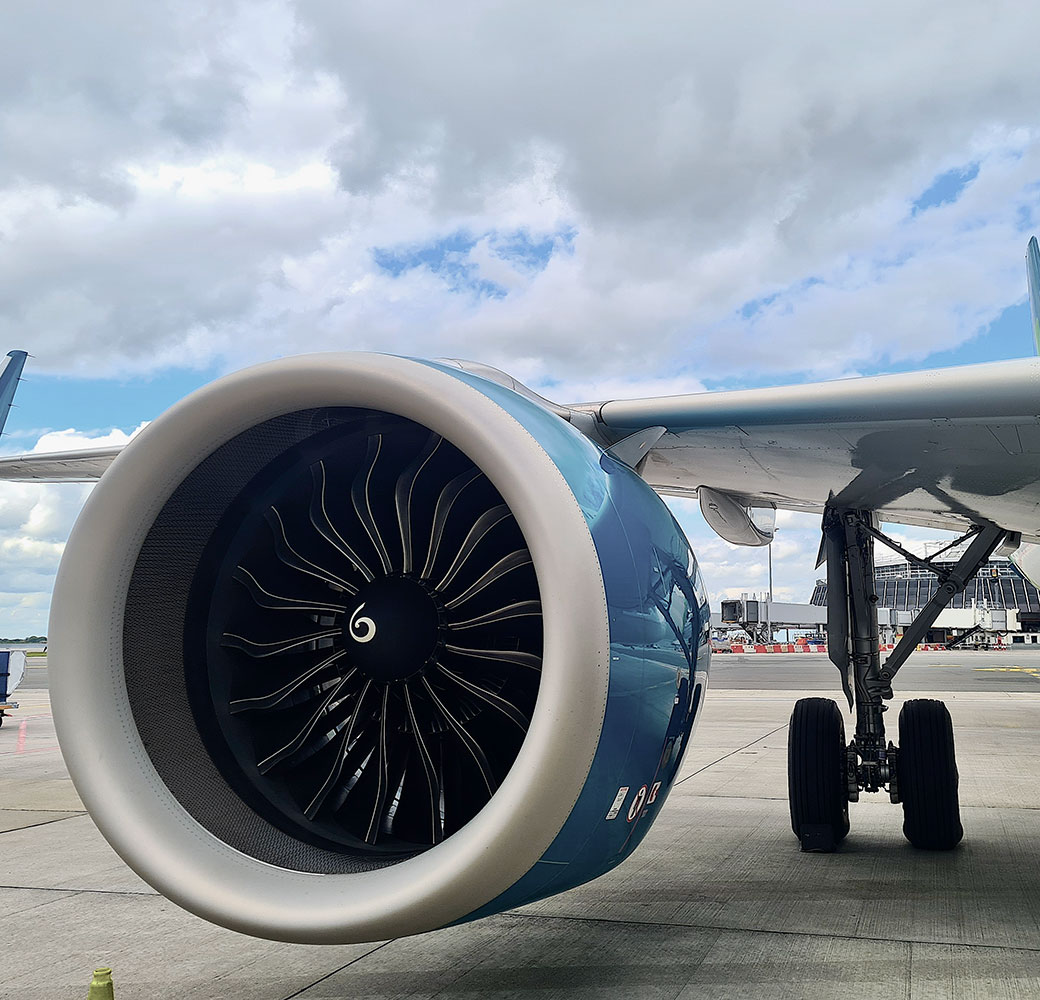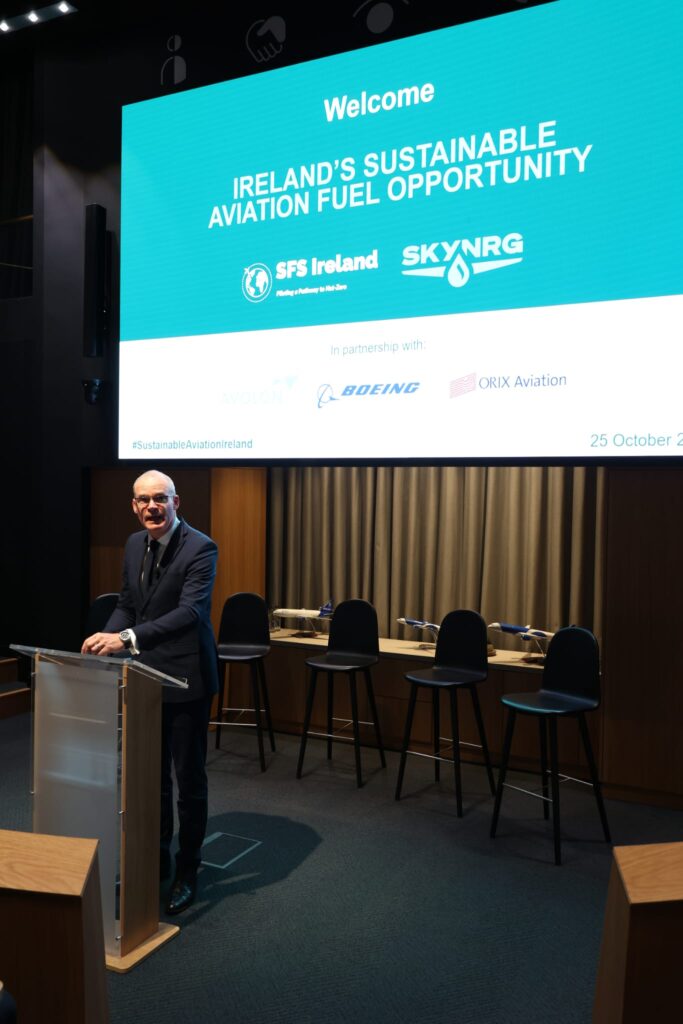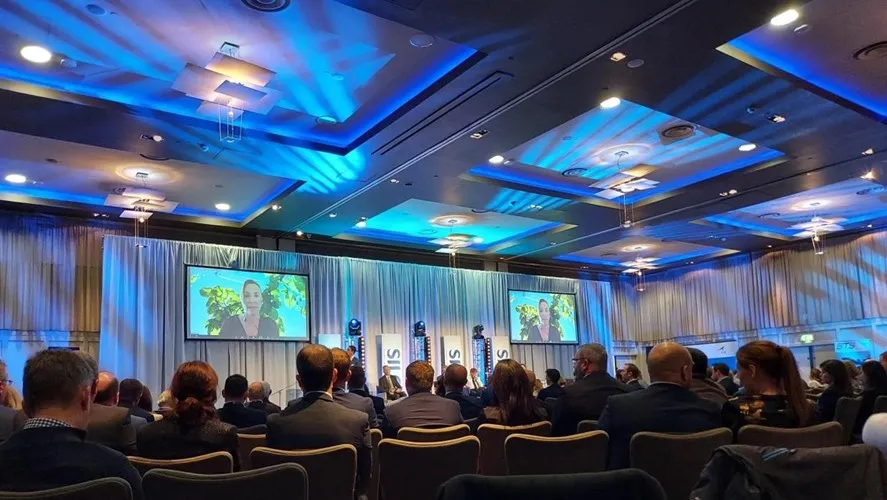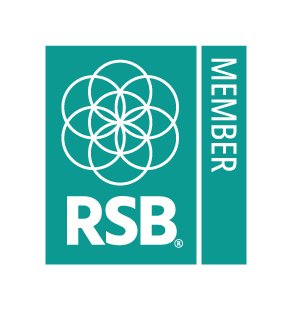Projects & Partnerships
- Home
- Projects & Partnerships


2022-2023 SAF Ireland Feasibility Study
Project outline
- SFS Ireland and SkyNRG will jointly conduct a year-long feasibility study on the development of a commercial-scale SAF production facility in Ireland. The study is agnostic in terms of feedstock and technology but only includes sustainable (waste-based) feedstock.
- Based on previous work and market intelligence, SAF production pathways utilizing solid bio-based waste and green hydrogen in combination with CO2 are specifically of interest, but all pathways will be examined.
- The aim is to assess the techno-economic feasibility of a local Irish supply chain, providing sustainable fuel opportunities for the domestic market, potentially including exports.
- Sustainability is at the core of the project and the EU RED II framework serves as input for the study. Next, an assessment on the social-environmental impact of the supply chain will be conducted.
- The project is supported by 3 major aviation players active in Ireland and Internationally.
If the feasibility study results are positive, there is significant interest from multiple stakeholders to develop the study into a project and start the high-level engineering and contracting activities.
2022-On Realise CCUS – Industry Club
Refineries play a major role in our modern lifestyles, making it possible to provide an almost infinite range of everyday products – from electronics, fuels, and medical supplies to construction materials and sports equipment. These industries emit carbon dioxide (CO2) as part of their inherent processes. Carbon capture, utilisation, and storage (CCUS) technology offer a way to reduce these emissions substantially as part of Europe’s wider efforts to meet climate targets by 2030 and the EU’s commitment to net-zero emissions by 2050.
The REALISE CCUS project unites industry experts and scientists from different nations in a concerted drive to support the refinery sector’s decarbonisation ambitions. Our research, funded by the European Union’s Horizon 2020 program, focuses on the full CCUS chain – from CO2 capture, transport, and geological CO2 storage to CO2 reuse – for specific clusters which include refineries and other industries. Our results will support CCUS delivery by demonstrating the technology, enabling sizeable cost reductions, undertaking a public engagement, and assessing financial, political, and regulatory barriers.
SFS Ireland was invited to speak at the UKEM in Oct 2022
We were delighted to present our journey to academics and engineering experts from the PtL field on how to connect research to industry. It is important to understand the efforts and work being provided by technology experts to ensure SAF ultimately meets all necessary standards and performance requirements. Connecting technology development to final deployment shows the ultimate challenge the industry faces but is also a credit to the efforts being taken across multiple research and industry sectors.
2021 Shannon International Leasing Conference 2021
SFS was invited to speak at SILC 2021; we presented for 30 minutes on aircraft emissions, how SAF reduces emissions, the global SAF supply situation, the Irish SAF situation, and finally, a plan to bring SAF manufacturing to Ireland. The conference was an excellent opportunity to get the company name out there and meet like-minded and potential future partners from the industry.
2021 DCU Pre-EAC Webinar: Aviation & Climate Change
Climate Change and how the Aviation Sector contributes to it were discussed at the Pre-EAC virtual conference @BusinessDCU, DCU, Dublin, Ireland.
Sustainable Flight Solutions attended the webinar and wrote a blog on the very important discussions had by leading academics and industry representatives.
Read the full blog by clicking on the picture below.







